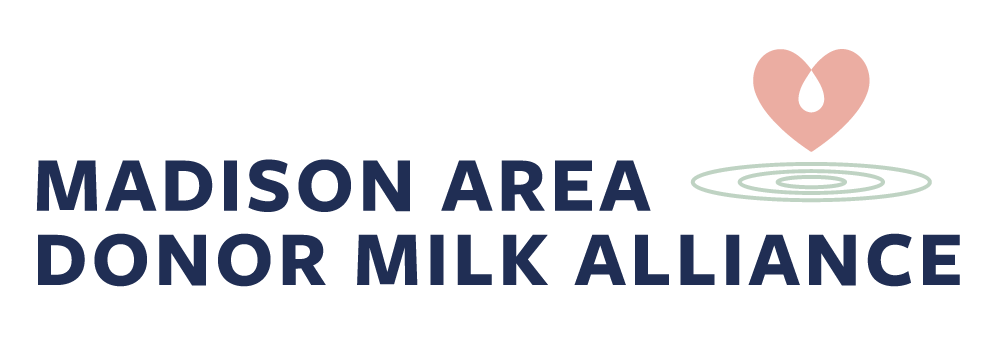What is Milk Sharing?
Milk sharing is the donation of breastmilk from peer-to-peer, family-to-family, from those who have extra to those who are in need of breastmilk to feed their babies.1
Madison Area Donor Milk Alliance (MADMA), formerly known as Mothers’ Milk Alliance, is an informed choice model of human milk sharing that facilitates donor lab testing, safety education and health screening, and accessibility to local infants up to 6 months of age. Donor milk is free.
What is the difference between MADMA and a milk bank?
Our facilitated milk-sharing organization is distinctly different from a milk bank. With formal milk banks, milk from several donors is pooled together and pasteurized. Banked donor milk is usually intended for medically-fragile babies in Neonatal Intensive Care Units/NICUs. These babies’ nutrition is very carefully monitored for caloric and macronutrient intake. This is why there’s a cost to purchase banked milk over-the-counter. With MADMA, the donor milk is not pasteurized (home pasteurization instructions are available), and the donor milk is free.
Why milk share? Why not just give formula?
Families choose to milk share for many different reasons.
Some want to avoid the risks of formula, or their baby is having trouble tolerating formula.2
Some choose milk sharing for its health benefits.
Some choose to milk share to increase the sense of sustainability in their community.3
Some choose to milk share purely for the mental health benefits of knowing that if they themselves cannot provide all of their baby’s nutrition, another family is willing to altruistically offer the same breastmilk that they give to their own baby.4 In addition, a person who is grieving the loss of a child often finds that donating their milk brings meaning to their loss and helps toward healing.
Many healthcare providers know that milk sharing is a popular option, assist families with making an informed choice, and educate them about how to reduce risk with milk sharing.5
1 Milk sharing: from private practice to public pursuit
2 Milk sharing and formula feeding: Infant feeding risks in comparative perspective?
3 Environmental Impact of Feeding with Infant Formula in Comparison with Breastfeeding
4 “It’s more than milk, it’s mental health”: a case of online human milk sharing
5 Academy of Breastfeeding Medicine's 2017 Position Statement on Informal Breast Milk Sharing for the Term Healthy Infant

